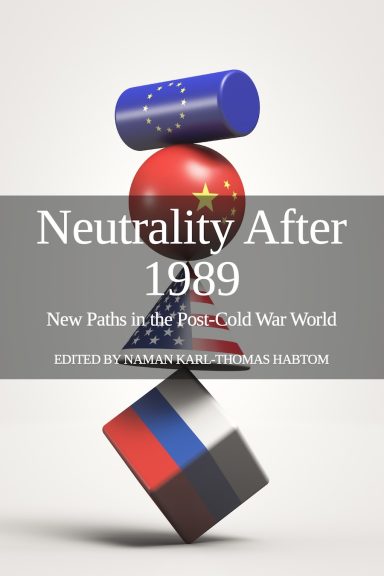Following the collapse of the Soviet Union and the emergence of the United States as the world’s sole superpower, neutrality was seen by many as a relic of the Cold War. However, the arrival of rising powers on the scene and the gradual shift towards multipolarity as countries like Russia and China assert their influence and challenge the US-dominated international order has in turn revived neutrality in its various forms. This book begins with a range of chapters examining the ‘old neutrals’ of Europe via contemporary Austrian and Swiss neutrality, the decline and end of Swedish and Finnish neutrality, and the resilience of Irish neutrality. Later chapters deal with the emergence of ‘new neutrals’ via examinations of Vietnamese ‘bamboo diplomacy,’ Israel’s efforts to balance its relations with Washington and Moscow, and Oman’s non-interventionist foreign policy. As the range of chapters show, the role of neutrality – and its perception or misperceptions – remain vital in understanding contemporary geopolitics and international relations.
Neutrality After 1989: New Paths in the Post-Cold War World
Table of contents
You can read the web versions of each chapter below, or download the full book by clicking on the PDF icon above.
Introduction – Naman Karl-Thomas Habtom
The Neutralities of Austria and Switzerland: Akin but Not Alike – Pascal Lottaz
Sweden’s Role in International Security Affairs: Officially Non-Aligned but Ready to Serve – Erik Noreen and Roxanna Sjöstedt
From Cold War ‘Neutrality’ to the West: Finland’s Route to the European Union and NATO – Jussi Pakkasvirta and Hanna Tuominen
The Resilience of Irish Neutrality – Karen Devine
Bamboo in the Wind: Vietnam’s Quest for Neutrality – Nguyen Khac Giang
Great Power Rivalry and Israeli Selective Neutrality: ‘Walking Between the Drops’ – Liudmila Samarskaia
Oman: Partisan Non-Intervention – Roby C. Barrett and Leah Sherwood
About the editor
Naman Karl-Thomas Habtom is a doctoral student at the Faculty of History, University of Cambridge. Previously, he has been a visiting researcher at the Swedish Defence University, Université libre de Bruxelles, and Stockholm University’s Hans Blix Centre. His research focuses on contemporary European military and diplomatic history with a special focus on Sweden. His research interests also include neutrality, foreign fighters, and nuclear weapons policy. He has published articles in Scandinavian Journal of History and the Scandinavian Journal of Military Studies and has written on international affairs and security policy for War on the Rocks, Lawfare, and Responsible Statecraft among others.
